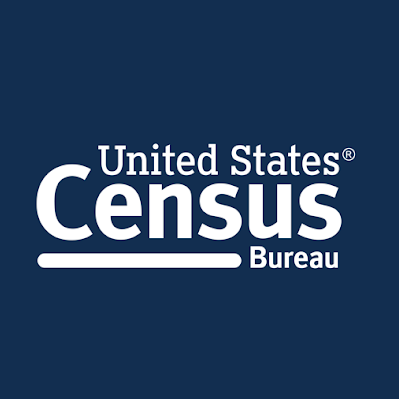Description
The United States Census Bureau (USCB), officially the Bureau of the Census, is a principal agency of the U.S. Federal Statistical System, responsible for producing data about the American people and economy. The Census Bureau is part of the U.S. Department of Commerce and its director is appointed by the President of the United States.
The Census Bureau's primary mission is conducting the U.S. census every ten years, which allocates the seats of the U.S. House of Representatives to the states based on their population. The bureau's various censuses and surveys help allocate over $675 billion in federal funds every year and it helps states, local communities, and businesses make informed decisions. The information provided by the census informs decisions on where to build and maintain schools, hospitals, transportation infrastructure, and police and fire departments.
In addition to the decennial census, the Census Bureau continually conducts over 130 surveys and programs a year, including the American Community Survey, the U.S. Economic Census, and the Current Population Survey. Furthermore, economic and foreign trade indicators released by the federal government typically contain data produced by the Census Bureau.
Legal mandate
Article One of the United States Constitution (section II) directs the population be enumerated at least once every ten years and the resulting counts used to set the number of members from each state in the House of Representatives and, by extension, in the Electoral College. The Census Bureau now conducts a full population count every ten years in years ending with a zero and uses the term "decennial" to describe the operation. Between censuses, the Census Bureau makes population estimates and projections.
In addition, Census data directly affects how more than $400 billion per year in federal and state funding is allocated to communities for neighborhood improvements, public health, education, transportation and more. The Census Bureau is mandated with fulfilling these obligations: the collecting of statistics about the nation, its people, and economy. The Census Bureau's legal authority is codified in Title 13 of the United States Code.
The Census Bureau also conducts surveys on behalf of various federal government and local government agencies on topics such as employment, crime, health, consumer expenditures, and housing. Within the bureau, these are known as "demographic surveys" and are conducted perpetually between and during decennial (10-year) population counts. The Census Bureau also conducts economic surveys of manufacturing, retail, service, and other establishments and of domestic governments.
Between 1790 and 1840, the census was taken by marshals of the judicial districts. The Census Act of 1840 established a central office which became known as the Census Office. Several acts followed that revised and authorized new censuses, typically at the 10-year intervals. In 1902, the temporary Census Office was moved under the Department of Interior, and in 1903 it was renamed the Census Bureau under the new Department of Commerce and Labor. The department was intended to consolidate overlapping statistical agencies, but Census Bureau officials were hindered by their subordinate role in the department.
An act in 1920 changed the date and authorized manufacturing censuses every two years and agriculture censuses every 10 years. In 1929, a bill was passed mandating the House of Representatives be reapportioned based on the results of the 1930 Census. In 1954, various acts were codified into Title 13 of the U.S. Code.
By law, the Census Bureau must count everyone and submit state population totals to the U.S. President by December 31 of any year ending in a zero. States within the Union receive the results in the spring of the following year.






























